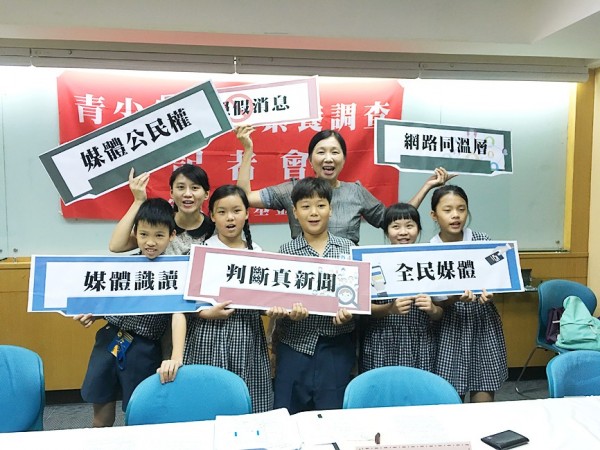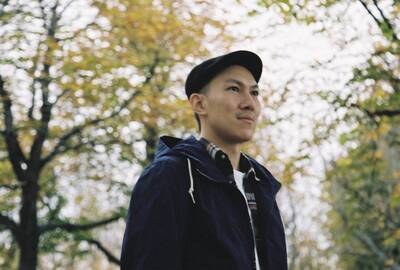《TAIPEI TIMES》 Fact-checking platform to fish out fake news: NCC

Students at Beixin Elementary School in New Taipei City hold up signs with media-related texts during an event on June 9 at which King Car Cultural and Educational Foundation presented a study showing that 90 percent of elementary and junior-high school students felt that media outlets would look for the truth. Photo: Lin Hsiao-yun, Taipei Times
By Wu Po-wei, Wu Po-hsuan and Jake Chung / Staff reporters, with staff writer
A joint effort between the National Communications Commission (NCC) and private organizations is looking to establish Taiwan’s first fact-checking platform by next year in hopes of combating fake news.
The commission has held three meetings this year with various platform operators, media agencies and broadcasters and private organizations on potential methods of verifying news reports, NCC Department of Broadcasting and Contents director Huang Chin-yi (黃金益) said yesterday.
Other governments have refrained from being overly involved in the media to prevent infringing upon freedom of speech, Huang said, adding that the NCC is inclined to leave the private sector or service providers to come up with an oversight platform.
Government agencies should nonetheless offer clarification to calm the public if disinformation spread by fake news falls within their purview, Huang said.
However, Wang Yi-chen (王怡蓁), a member of Media Watch — a private foundation dedicated to media monitoring and journalistic professionalism — said that efforts by the private sector are insufficient and the government should instead work with companies to establish a relatively complete fact-checking system that combines governmental and non-governmental efforts.
Taiwan has been relying on the self-discipline of its media agencies, as well as the efforts of civic organizations in the nation, Wang said.
The foundation said it is also planning to release a study at the end of this month about reported news and verified information regarding medical, social and trending news stories.
Not all fake news is entirely fabricated; it might simply contain erroneous facts or have ironic or sensational headlines, Wang said, adding that the platform is not an attempt to clash with news agencies, but rather aims to inform the public about the accuracy of what is being reported.
National Chung Cheng University professor of communications Hu Yuan-hui (胡元輝), a participant in the platform, said that the US has more than 200 organizations dedicated to verifying news articles.
Most of these organizations are collaborative efforts by media agencies, Hu said, adding that for Taiwan to have no such body shows a delayed reaction on a pressing issue.
The platform would not only ask for assistance from the public, but would also ask journalists and academics to help, especially regarding news reports related to public policy and life in general, Media Watch said.
新聞來源:TAIPEI TIMES




















